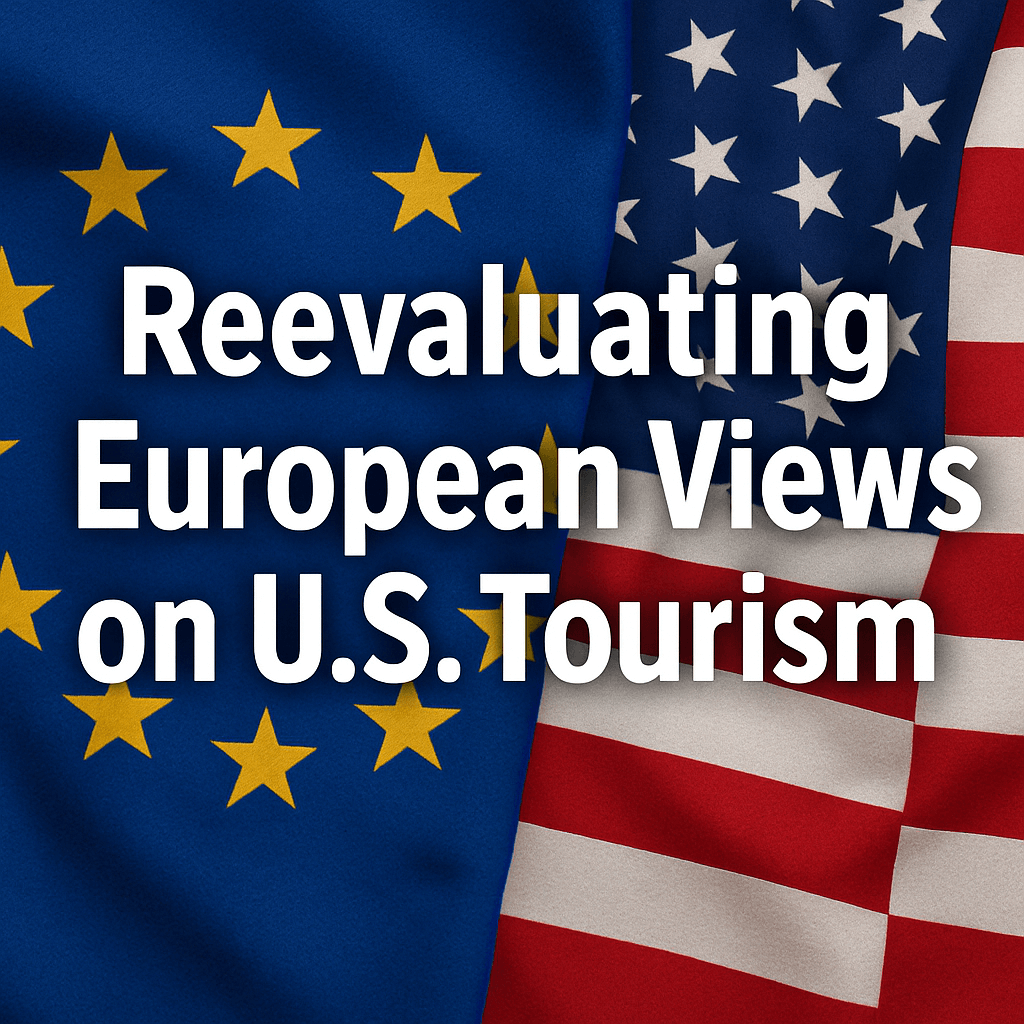Reevaluating European Views on U.S. Tourism

The dynamics of transatlantic travel are witnessing significant shifts as European tourists are increasingly reconsidering their trips to the United States. Factors driving these changes include geopolitical tensions, perceptions of U.S. immigration policies, and fluctuating economic conditions.
The Impact of U.S. Policy on Travel Trends
Following the adoption of stringent immigration policies and tariffs during the Trump administration, many potential travelers from Europe are exhibiting hesitance to visit the U.S. In March, the number of visitors from Western Europe plummeted by 17% year-on-year, although a 12% recovery occurred in April, as reported by the U.S. tourism office.
The German Travel Association (DRV) confirmed this trend, noting a significant 28% decrease in German visits to the United States in March, before a 14% rebound in April. This fluctuation can be partially attributed to the timing of the Easter holidays, which fell later in 2023 compared to the previous year.
“There’re practically no requests in recent months to change or cancel reservations. However, we’ve observed an uptick in inquiries about entry requirements into the United States.”
Concerns Regarding Entry Procedures
As American borders tightened, several European nations urged residents to review their travel documentation for entry into the U.S. This advisory came on the heels of high-profile incidents where Europeans faced detention and deportation upon arrival. For travelers like Raphael Gruber, a German doctor who has vacationed in Massachusetts with his family, this evolving situation has created unease.
Gruber noted, “The country I knew no longer exists. Before, when you told the immigration officer you were there for whale-watching, that was a good reason to come. But now, they are afraid of everything that comes from outside.” His concerns are echoed by others, such as Matt Reay, a teacher from Northamptonshire, who expressed frustration with the perceived declining welcome for foreign visitors.
Economic Factors Influencing Travel Choices
While the emotional and political climate impacts decisions, economic elements also play a significant role in travel intentions. According to Oxford Economics, the stronger dollar this past spring made the U.S. a relatively expensive destination for Europeans, complicating travel plans further. The airline industry has responded with competitive pricing, making flights to cities like New York available for as low as 600 euros ($680).
Didier Arino, head of the French travel consultancy Protourisme, highlights this juxtaposition: “April traffic to the United States might have picked up due to discounted flight offerings.” However, he cautions the long-term impact of the so-called “Trump effect,” suggesting that overall French tourism to the U.S. could see a substantial decline of up to 25% this year.
Visitor Sentiment Towards American Culture
Travelers’ sentiments are also shaped by the broader cultural and political context. Many potential visitors have voiced discomfort over public statements made by prominent figures in the U.S. government, which have contributed to a perceived culture of exclusion. With the Trump administration’s tariffs on British imports and derogatory remarks towards foreign nations, some tourists have reevaluated their interest in visiting.
The World Travel and Tourism Council reports that the U.S. tourism sector could face a staggering loss of $12.5 billion in spending from foreign visitors this year, primarily due to Canadian and Mexican travelers also staying away.
Conclusion: A Complex Landscape for U.S. Tourism
The landscape for U.S. tourism is increasingly complex, shaped by a confluence of political, economic, and cultural factors. While some tourists are making plans to visit despite concerns, the prevailing sentiments reflect an underlying tension that could result in persistent declines in European tourism to the U.S. As travelers weigh the costs and benefits of their destinations, the U.S. may find it necessary to address these perceptions to maintain its position as a desired travel hotspot.
Source: fortune